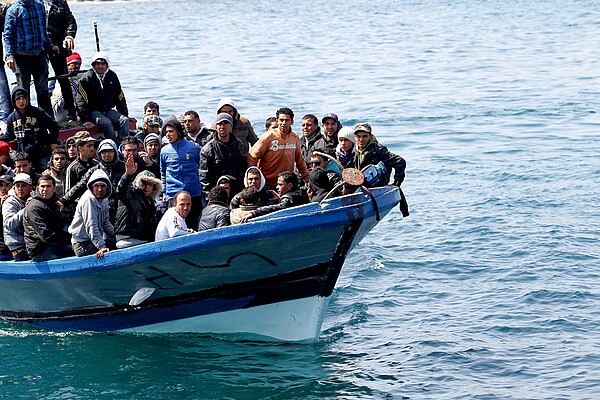With its new migration pact, the EU Commission wants to put an end to years of dispute among the member states. Before a migrant comes to a European country, the Commission believes that the state concerned should in future carry out a preliminary check at the border - much more extensive than before: migrants will be registered, fingerprints taken, health and safety checks carried out. If asylum seekers come from a country with a low recognition rate - Tunisia or Morocco, for example - there should be a fast border procedure within twelve weeks. A "normal" procedure applies to all others. During the procedures, the EU Commission does not rule out the possibility that migrants are held in closed camps. There will be no obligatory redistribution of protection seekers according to quotas among all EU countries. This idea had divided the EU states in the past years and was apparently not considered enforceable by the EU Commission.
Instead of obligatory redistributions, the Commission has therefore developed a multi-level system. There are to be financial incentives: If countries accept refugees from other member states, they should receive 10,000 euros per person from the EU budget. For minors, the figure is 12,000 euros. In normal times the EU states can help each other voluntarily. If a country is under pressure, however, it can trigger a so-called mechanism for obligatory solidarity. The EU Commission would then examine whether or how many people have to be taken away from the country.
Every other country would then have to offer help: Either it accepts migrants with the prospect of a protection status. Or it could help in other ways, such as migration management or through so-called "deportation sponsorships".
"I find the suggestion that countries in the EU can, so to speak, buy their way out of accepting refugees cynical," criticizes IB chairman Thiemo Fojkar the current proposal of the EU Commission. The EU Commission's plan does not promote solidarity among the countries of Europe, but rather the national egoism of states that can continue to refuse to offer refugees protection and shelter.
"The fathers of our consitution assumed that asylum seekers would make a corresponding request for admission directly here in Germany and then follow the path of the rule of law. They had no idea that there would one day be an EU external border that would help circumvent the right to asylum that they had established," Fojkar said. The goal must continue to be the fair distribution of refugees among the countries of Europe. If this continues to be unsuccessful, the EU as a community of 27 countries has failed, the IB chairman summarized.
"The future asylum policy of the EU will determine whether the Union is perceived as a Union that acts in a humanitarian way or not. If the EU fails here, I believe its existence is threatened. As the IB, we stand for a humanitarian asylum policy and, with our commitment to international development cooperation, for the fight against the causes of flight. As individuals, people on the run are entitled to humanitarian treatment and not just to a formally legally correct procedure. The IB promotes the integration of migrants into society, naturally on the basis of the rule of law. It is not for nothing that the IB's motto is "Strengthening Being Human. Every further attempt by the EU to seal itself off against refugees undermines its moral foundation," concluded Fojkar.




